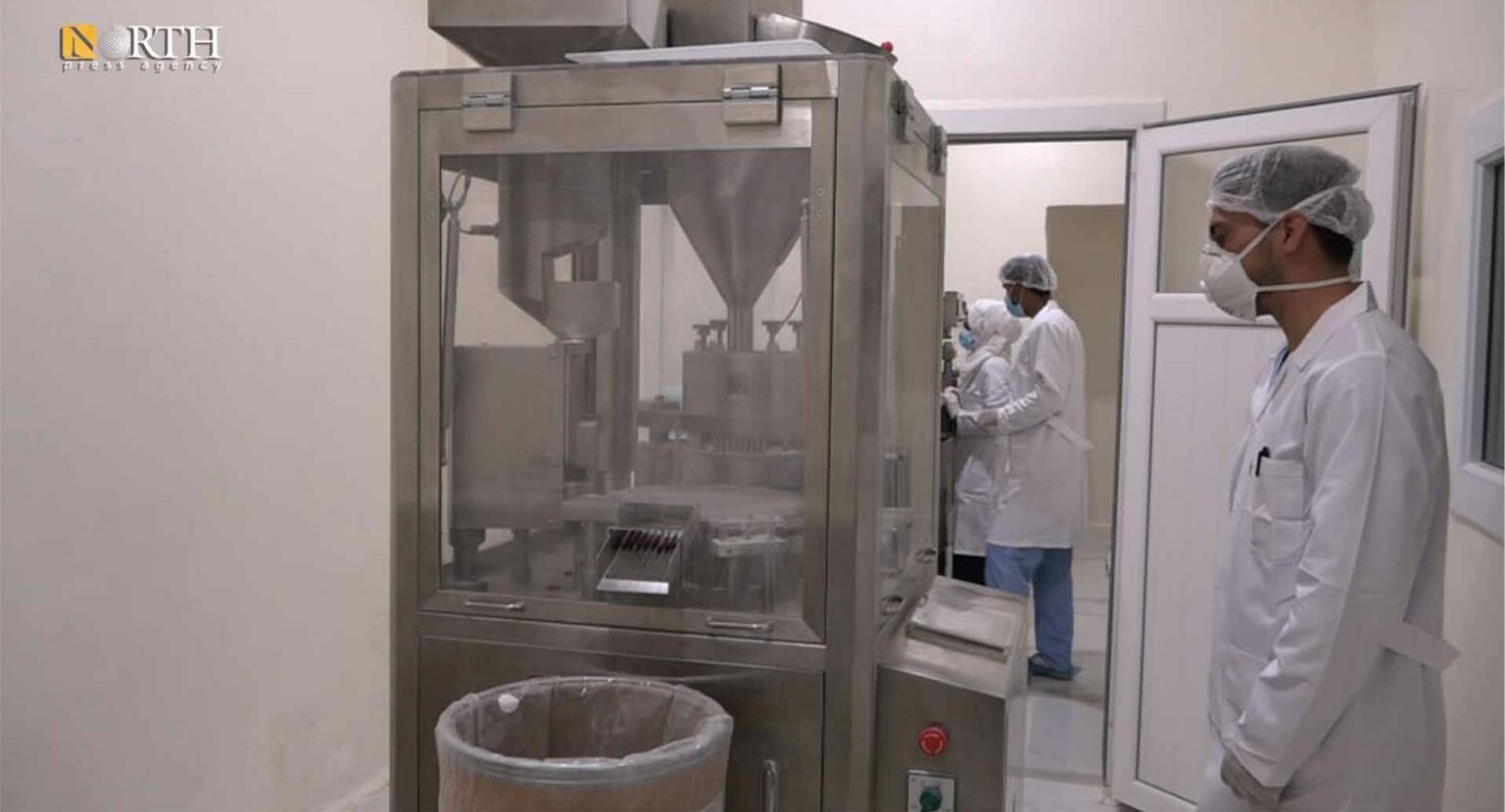Pharma Land Company, in the city of Manbij, north Syria, has been working for two years to produce types of medicines such as anti-inflammatories, antipyretics, and skin ointments, while it seeks to produce a new line that includes branded medicine such as blood pressure and diabetes.
In 2006, the company began as a factory that manufactured sterilizers and disinfectants to later produce medicines. It covers about 30% of the needs of the local market in Manbij at 40% lower prices than the imported ones, according to organizers in the company.
Currently, the company produces 11 types of skin ointment for the treatment of bone and back diseases, and creams for the treatment of psoriasis and hair loss.
Local experts such as pharmacists, chemists, and 50 workers for packaging are working in the company.
Pharma Land Company Owner Hassan al-Abadi said that the raw materials for pharmaceutical industry were brought from the government-held areas before the closure of the crossings linking government-held and Autonomous Administration-held areas.
“The price of most of the raw materials is high because it is according to the dollar exchange rates,” he added.
Al-Tayha crossing in Manbij, al-Tabqa crossing, and al-Akirshi crossing in Raqqa are the three crossings linking the government-held areas with the Autonomous Administration of North and East Syria (AANES) areas.
Since March 21, the Syrian government has closed the three main crossings linking its areas with the AANES-held areas.
The crossing is limited to humanitarian cases, students, and government employees only.
In May, Deputy Co-chair of the Legislative Council in Manbij Jum’a Haydar called on the Russian forces to pressure the Syrian government to reopen the crossings and exclude civilians from the political or economic pressures that Damascus puts on northeast Syria.
However, other sources in the AANES told North Press earlier that the closing of crossings has something to do with an Iranian-Russian conflict over the crossings’ revenues, not because of the political disputes between the government and the AANES.
For three months, pharmacies in most of northeast Syria have been witnessing a “severe shortage” of many types of medicines.
The most important medicines are for chronic diseases such as high blood pressure, diabetes, heart disease, and antibiotics, and even if they are secured, their prices can be high.
The company seeks, according to its organizers, to cover the needs of the local market more effectively through finding new import routes and starting to manufacture branded medicines such as blood pressure and diabetes medicines.
Al-Abadi mentioned that the company continues to produce sterilizers and disinfectants due to increased demand for them amid the coronavirus outbreak and people’s need for them.
According to the Manbij Health Committee, the validity, efficacy, and safety of the produced medicines are verified by laboratory experts affiliated with it working in the company’s laboratories because Manbij lacks chemical analysis laboratories affiliated with the Committee.
“We have several laboratories; the chemical, the physics, and laboratory of bacteriology. We conduct all types of analyses for all drug samples to ensure their safety,” Ahmed Abdulghani, a chemist in the company, said.
Abdulghani pointed out that no incident has been recorded so far indicating that the drug produced does not meet specifications or is not safe for use.

